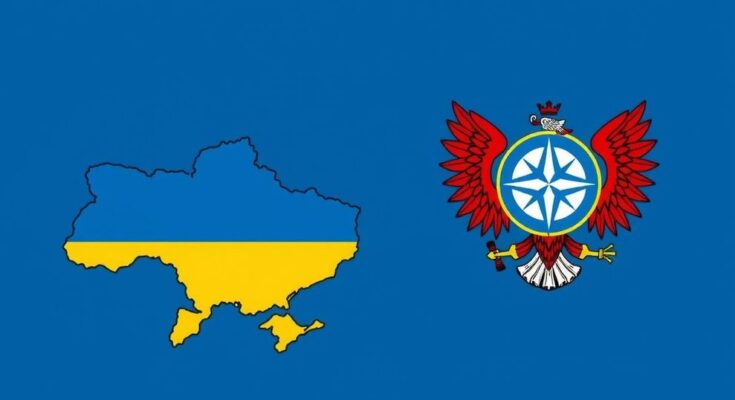The imminent U.S. presidential election raises fears over the potential reduction of American aid to Ukraine, especially if Donald Trump were to reclaim the presidency. NATO officials are preparing for possible changes by advocating for European nations to increase their military contributions to Ukraine. Concerns about Russia’s ongoing support from North Korea, Iran, and China complicate the situation, as NATO continues to strategize for Ukraine’s long-term support in the event of diminished U.S. involvement.
The upcoming U.S. presidential election has created a climate of uncertainty surrounding NATO discussions regarding military support for Ukraine. NATO Secretary of Defense Lloyd Austin, during a recent closed-door meeting with NATO defense leaders, acknowledged the potential implications of a Donald Trump victory on U.S. support for Ukraine. Despite affirming bipartisan congressional support for Ukraine, Austin indicated that expectations for U.S. military assistance could diminish, with NATO allies preparing for a transition to take greater responsibility for supporting Ukraine. A senior NATO official expressed concern about the future of U.S. aid under a possible Trump presidency, citing the need for Europe to enhance its military capabilities as they may no longer rely on the U.S. to bear a disproportionate burden in supporting Ukraine. The official noted, “We can’t expect that the U.S. will continue to take on an outsized burden” and emphasized Europe’s need to assume a more proactive role in security assistance. The current situation for Ukraine remains dire, with Russian forces gaining ground and outmatching Ukrainian capabilities in terms of artillery. There is concern over President Biden’s policy restricting the use of U.S.-provided long-range missiles in strikes against significant Russian targets, contrary to some NATO leaders’ views on the need for Ukraine to have adequate targeting capabilities. Amid the uncertainty, Austin suggested that Ukraine’s use of inexpensive, locally produced drones could serve as a viable alternative for targeting objectives within Russia. NATO is actively seeking to centralize authority over military training and support for Ukraine to ensure continuity in assistance should U.S. aid diminish. European nations are also increasing their military production capabilities to secure their defense and maintain aid to Ukraine. However, the future of an EU and G7 plan to provide substantial funding for Ukrainian military and reconstruction efforts remains uncertain due to Hungary’s opposition to necessary sanctions changes. Furthermore, the military aid landscape is complicated by Russia’s alliances, as North Korea, Iran, and China are bolstering Russia’s military efforts, allowing it to produce munitions at a significantly higher rate than NATO countries. While Austin assured allies of the U.S.’s commitment to maintaining its military support, NATO officials remain vigilant in addressing the evolving dynamics of the conflict.
The geopolitical context surrounding NATO discussions centers on the ongoing conflict between Russia and Ukraine, which has gained significant global attention. With the U.S. elections approaching, NATO allies are particularly concerned about the potential shift in U.S. foreign policy under a possible Trump administration. Historically, the United States has played a pivotal role in supporting Ukraine through military aid, training, and resources. However, the unpredictability associated with Trump’s previous statements concerning Ukraine raises alarm about future commitments. This uncertainty is exacerbated by the increasing military support Russia receives from other nations, such as North Korea and Iran, heightening NATO’s urgency to prepare for any reduction in U.S. aid.
The future of U.S. military support for Ukraine is precarious with the looming presidential election, creating a crucial period for NATO allies to prepare for potential changes in American policy. While Secretary Austin and others emphasize the ongoing bipartisan support for Ukraine, there are growing concerns about European allies stepping up to fill the potential gaps should U.S. assistance decrease. Addressing these challenges while facing increased military support for Russia from external actors underscores the urgency of strengthening Ukraine’s defense capabilities.
Original Source: www.cnn.com




